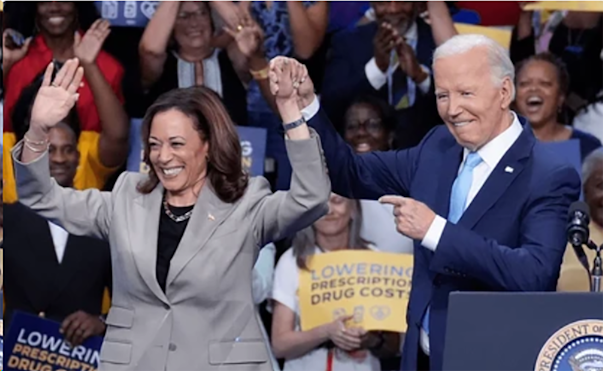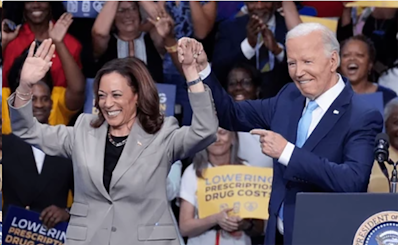Last week, we inadvertently conducted an A/B test that revealed significant insights into how low propensity voters are perceiving the Presidential election. At Civitech, we regularly engage with unregistered, eligible Americans who are unlikely voters. In this particular instance, we polled approximately 15,000 unlikely voters in the battleground states of Arizona, Wisconsin, Michigan, and Pennsylvania. Our poll commenced on Friday, July 19th, and was only halfway completed by Sunday, July 21st, when President Biden announced he was stepping out of the race and endorsing Vice President Kamala Harris. We promptly updated our script to reflect this change and resumed our polling on Monday, July 22nd.
The results shifted dramatically over the weekend, prompting us to divide our audience into two groups to analyze the pre- and post-announcement data. Before Biden's announcement, most unregistered, unlikely voters expressed support for "Someone else" or a named third-party candidate, with 29% supporting Trump and 17% supporting Biden.

However, following the historic announcement that Vice President Harris would be the Democratic nominee, we observed a seismic shift in voter preferences. Nearly half of those initially favoring "someone else" or a third-party candidate shifted their support to either Trump or Harris. Trump saw a modest gain of 4 points, while Harris surged ahead with a 21-point increase, significantly outpacing Trump.
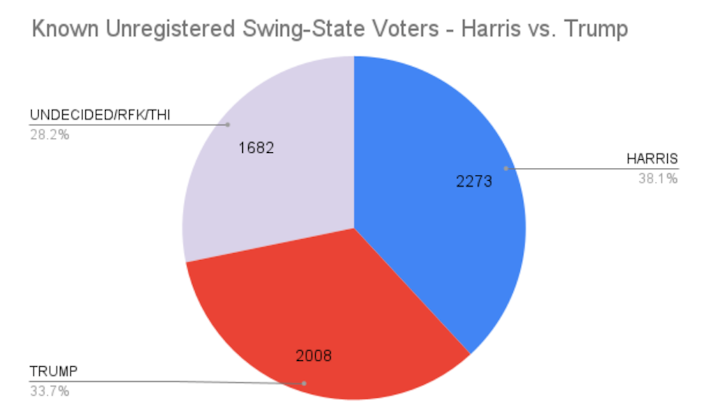
Our analysis indicates that this shift was consistent across all racial, gender, and age demographics, with more individuals moving towards VP Harris than towards Trump or remaining undecided.
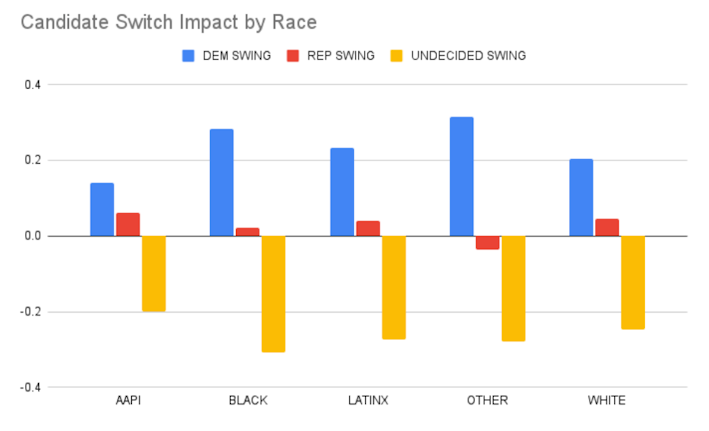
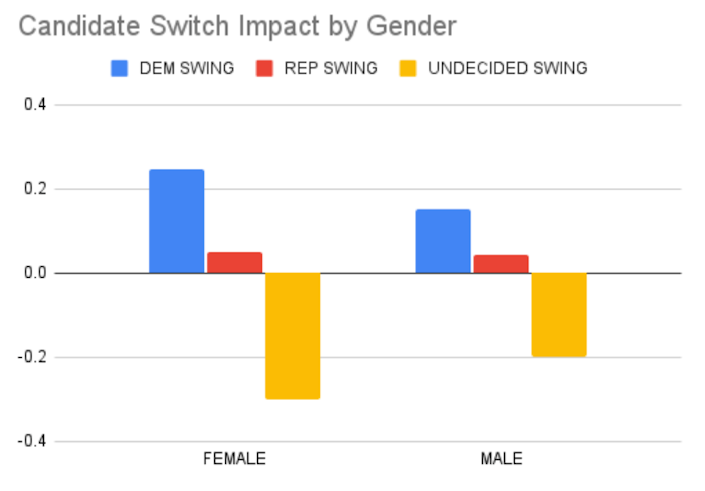
Note that we received responses from people who identify as nonbinary, but not in sufficient quantities to achieve statistical significance.
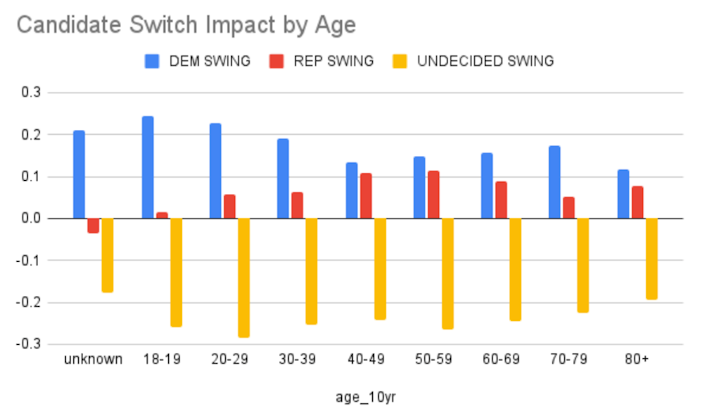
Civitech is a technology company focused on utilizing data and tools to make it easier for people to vote and run for office. Our research focuses on persuading, exciting, turning out, and assisting people who typically fall through the cracks of civic engagement. Unregistered individuals are often excluded from polls and targeted political communications, leading to lower levels of political awareness and engagement. However, we have consistently found that many of these people would like to participate more, but don’t know how. They also state that they don’t get asked or invited to participate, likely because political campaigns use their “voterfiles” of registered voters to target their communications.
